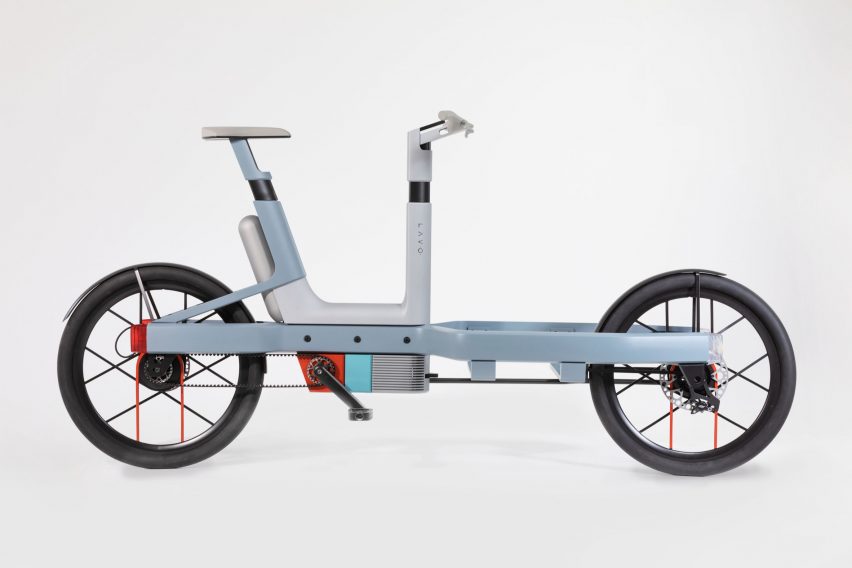
Lavo, the hydrogen bike that wants to bury electric biclous

The cargo bike is on the rise. According to a study commissioned by industry players, their sales increased 38% in 2020 and they could end on a 66% jump this year. The Dutch design firm Studio MOM has just positioned itself in this dynamic market by presenting a hydrogen model. With the help of the Australian company Lavo, he developed a two-wheeler capable of “ traveling long distances without heavy batteries and without emitting CO2 . "
Studio MOM even ensures that it is the “ first hydrogen-powered bicycle in the world ”, but this is to forget that the French startup Pragma Industries had launched the αlpha in 2017. Presented at the time as “the only bicycle to hydrogen approved and produced in series worldwide ”, it can travel 100 kilometers thanks to two hydrogen tanks. Initially sold for 15,000 euros, it is now worth 4690 euros each, but cannot do without a charger at ... 30,000 euros. As this investment is not within everyone's reach, the French company relies on long-term rental. " Our goal is to lower the price below 90 € per month from next year ," said CEO Pierre Forté to L'Equipe, in October.
How does it roll? Hydrogen bikes work through electrolysis. In a fuel cell, hydrogen is brought into contact with the oxygen in the ambient air. A chemical reaction then produces electricity, and only releases water vapor. “Our battery contains 5 to 10,000 times less metals than a lithium battery, ” emphasizes Pierre Forté. Another advantage, “αlpha fills up with hydrogen in just 2 minutes with a dedicated station, while standard e-bikes take over 3 to 4 hours to be fully charged . It remains to have a charging station that is still expensive, and whose production is not completely neutral for the environment.
Today, Pragma Industries is also working on a cargo bike in partnership with the Dutch Urban Arrow. However, this HydroCargo has not yet been presented, while Studio MOM is already promoting its Lavo. The Australian company intends to solve the problem of the charging station with a hydrogen fuel cell that draws its energy from the sun's rays. The photovoltaic device is integrated on a module which can be added or removed like a piece of LEGO. “ We designed it as a toolkit for a new mode of emission-free transport ,” explains Studio MOM. “ The concept can therefore be easily adapted to a city bike or a transport bike . "
But for now, Studio MOM has not communicated any launch date for the Lavo. It will therefore be necessary to pedal a little longer.
